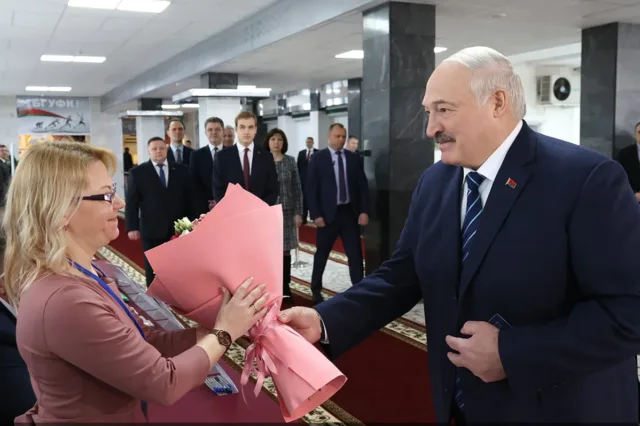Belarus held its parliamentary and local elections on February 25, 2024 (Sunday). January 30 was the last date for the registration of candidates. The results were announced on February 26 (Monday). The election campaigning was from January 31 to February 24. 110 deputies of the House of Representatives of the National Assembly of the eighth convocation won the parliamentary election. 12,514 deputies of local councils of deputies of the twenty-ninth convocation were declared victorious in the local election.
The House of Representatives of the National Assembly of Belarus will hold its first meeting in March’s third and fourth weeks. The formation of standing committees and working bodies of the House of Representatives and the election of the speaker are some of the agendas of the meeting. The last election in Belarus was in 2020. Several international dignitaries have congratulated Belarusian President Aleksandr Lukashenko for the peaceful conduct of the election.
Conduct of the Election
There were 5,411 polling stations set up in Belarus. Of these, 11 stations were in military units, and 215 stations were in hospitals, sanatoriums, and various rest homes. 73.09% of 6,912,221 voters cast their votes. There was early voting from February 20-24. 41.71% of Belarusians participated in early voting, reflecting a high turnout. A wide range of documents were considered for the issue of ballots to citizens. They were passports, biometric passports, identification cards, military ID cards, service certificates of an employee of a state body, driver’s licences, pensioner’s certificates, disability certificates, and student cards. If the voter had made a mistake in his or her ballot paper, the precinct election commission would issue them a new one. There was ample liberty during the vote.
Observers
There were several national and international bodies monitoring the election. The Central Election Commission (CEC) announced it had authorised 45,505 national and 294 international observers on election day. Among the internationals were the Commonwealth of Independent States (CIS), the Shanghai Cooperation Organisation (SCO), representatives of the Collective Security Treaty Organisation (CSTO) Parliamentary Assembly, and the Parliamentary Assembly of the Union States of Belarus and Russia. Representatives of electoral bodies from foreign states and experts from various countries were also present during the election. Some European countries with representatives present were Bulgaria, Germany, Italy, Lithuania, Poland, France, Serbia, Sweden, and Switzerland.
Observations
Observers had complete freedom in their manner of observation, and they could choose whichever polling booth they wanted. CIS observer Khalmurat Rashidov appreciated the liberal working conditions in Belarus on this crucial day. He said, “We saw almost all stages of the electoral process. According to our observations, ahead of the main voting day, all stages were carried out at the proper level, without any serious violations.”
The head of the SCO Observation Mission, Nurlan Yermekbayev, commended the proper organisation of the electoral process. He said, “This must be objectively recognised. This is manifested in the widespread awareness of the population. In open access to the necessary information. In polling stations, their level of equipment and facilities, their location, and level of professional skills of members of election commissions.”
An independent observer from Switzerland, Wilhelm Wyss, visited the Center for Public Observation of Elections and commented on the highly organised data collection system of the voting process. He said, “I am very impressed by how the centre’s work is organised. Similar structures are set up for election campaigns in Switzerland. However, in my opinion, people in Belarus have a more responsible attitude to the voting process. The voting process is carried out in accordance with international standards. People go to the polls consciously. If they have any questions, they get immediate answers. The electoral system in your country meets the highest criteria.”
Independent observers from Italy, Germany, and Bulgaria also appreciated the democratic voting process that Belarus displayed in the last few days.
Belarus is ready to form a new state body in addition to the parliament. This would be a 1,200-seat All-Belarus Popular Assembly, including top officials, local legislators, pro-government activists, union members, etc. Its responsibilities include considering new amendments and appointing election officials and judges. After a successful parliamentary and local election, Belarus is gearing up for its next presidential election to be held in 2025.









